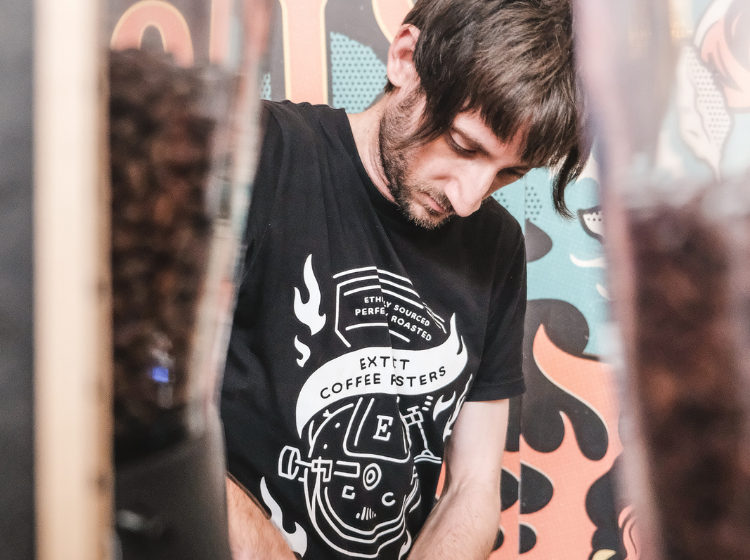Better for the Planet
We recognise that we live in a world with finite resources and we want to play our full part in the global movement cutting carbon emissions from the coffee supply chain. Some of the steps we've taken to reduce our environmental impact are big, whilst other steps are pretty small, but regardless of size we've learned that every step counts.
Recycling & Restoration is in our bones
Upcycling and restoration are a big part of Extract Coffee Roasters; it’s just how we approach life. For instance, a visitor to our roastery will notice that our cupping table is made from reclaimed planks and the door handles were formerly parts of the roasting equipment.
Our vintage roasters have been restored rather than bought new. Our biggest roaster, Bertha, was brought over from Bosnia. Our smaller roaster, Betty, has been with us a decade now but was made in the 1950s. In the last few years, we’ve modernised these beautiful machines to make them as efficient and environmentally sound as possible.
MEET THE ROASTERS
LOWER IMPACT LATTE ART
A Extract, we've been using Barista Carl's Blend, a practical, eco-friendly way to practice latte art with no dairy wastage.
BCB has been engineered to replicate milk when frothed and is added to water for latte art practice. A far lower-impact way of practising latte art than using dairy or plant-based alternatives. We love it.
We estimate this simple change saves 10-14 litres of milk per Intermediate Latte Art training session. That's 32kg CO2e or the equivalent of driving 152km!

Cutting transport miles
We receive our coffee beans by sea, not air, which keeps carbon emissions down. We are always looking for ways to make the journeys shorter and the transportation more efficient.
One example is the beans for our Half Speed low caffeine and Decaf coffees from Brazil. With our previous decaf, using the Swiss Water method, South-American beans were shipped to Vancouver to remove the caffeine before being sent on to the UK.
Today, we use coffee from Brazil, decaffeinated within Europe by soaking the beans in water EA (a natural decaffeination method) to cut out the unnecessary food miles.
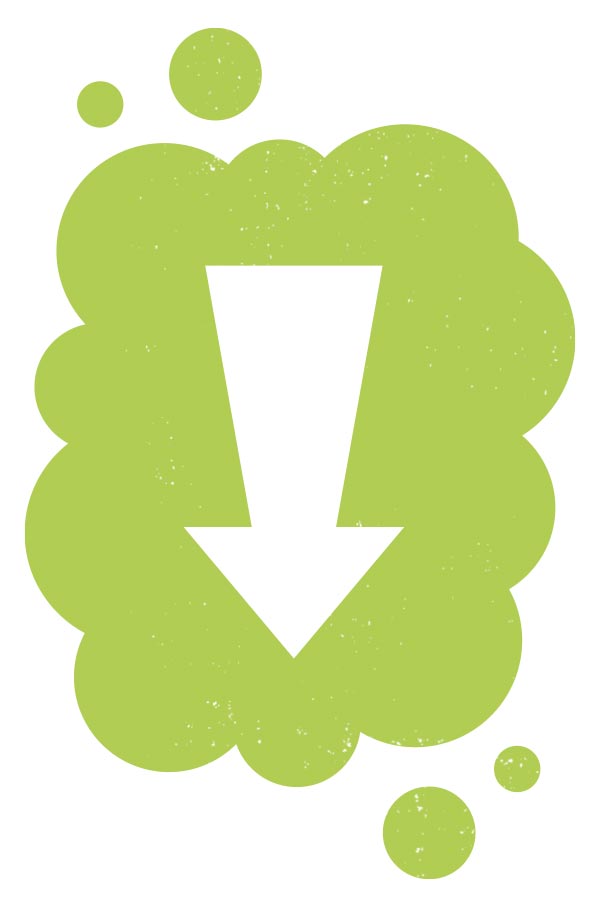
Cutting emissions & Pollution
Even though our energy source is carbon neutral, we are still taking steps to use power as efficiently as possible: we’ve tinkered with our roasters to optimise their performance, added a variable fan and upgraded the burner. They now run off just 40% of the fuel they would have used when new.
We’ve also added afterburners to our roasters to eliminate VOCs (volatile organic compounds) from our emissions – meaning cleaner air for our Bristol community.
Check out our blog post for Clean Air Day about why clean air is something that's important to us Extract Coffee Roasters and the steps that we're taking to reduce air pollution.
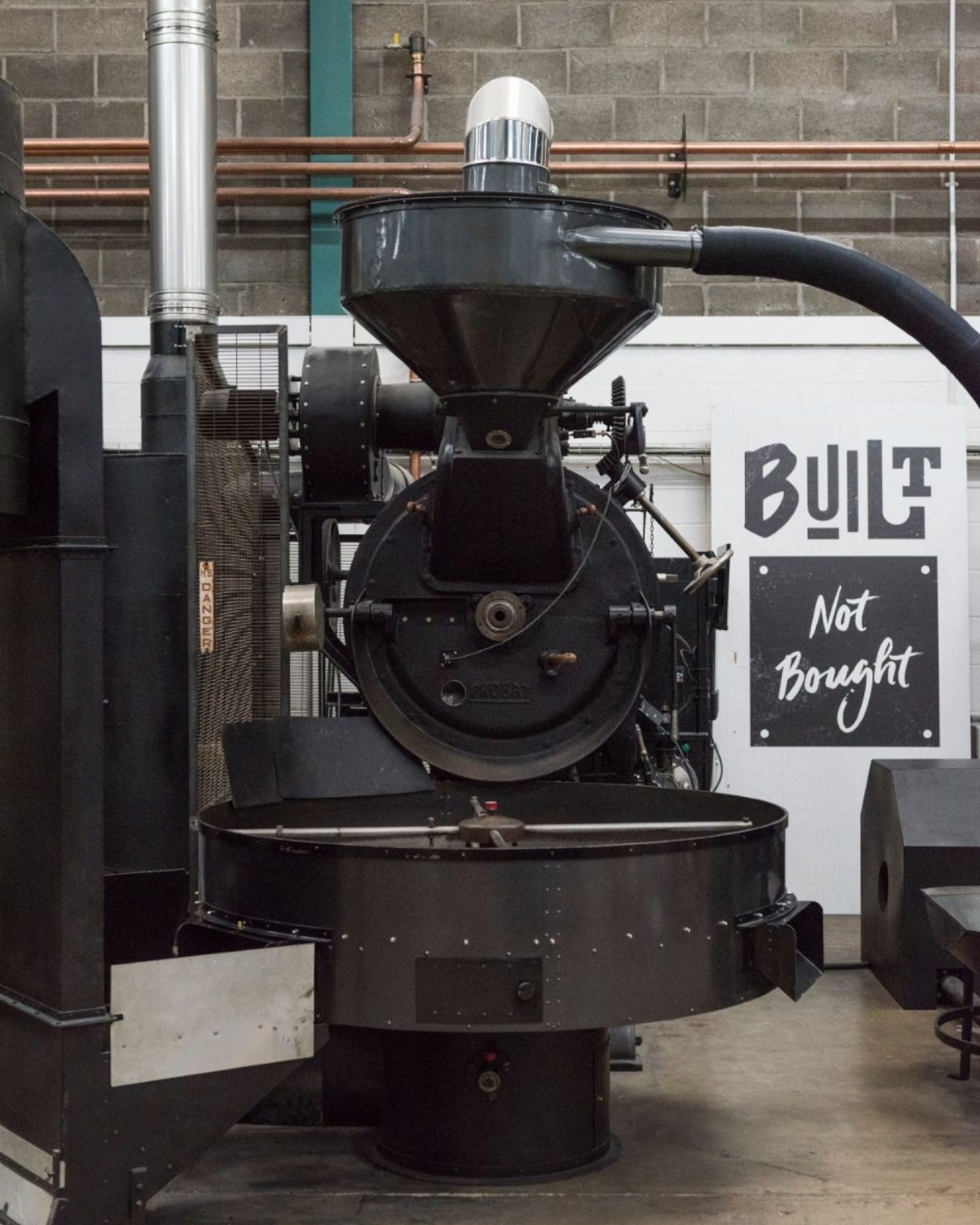
Our Packaging
In November 2024, we officially started to roll our our brand new packaging. Starting with our 250g bags, with our 1kg bags following in early December we have now moved to a packaging which is fully recyclable made from a PPPE mix.
This is a huge step for us at Extract Coffee Roasters, not only are our new bags fully recylable at your local supermarket, but we also think they look great too.

Recycling Coffee Chaff & Grinds
When you roast coffee, you are left with a nitrogen-rich chaff – like a fine sawdust. Our leftover coffee chaff is collected by New Macdonald's Farm, a higher welfare organic farm in Bath. They use it first as chicken bedding, and then as compost around the farm.
Bristol-based GENeco recycle our spent coffee grounds into bio-diesel to power GENeco's collection vehicles, bio-methane which powers our homes and fertiliser which is sold to local farms.
GENeco estimate the 3.4 tonnes they collected from us in June 2021 displaced 2 tonnes of CO2 through landfill diversion and produced enough power to charge an iPad more than 29,000 times!
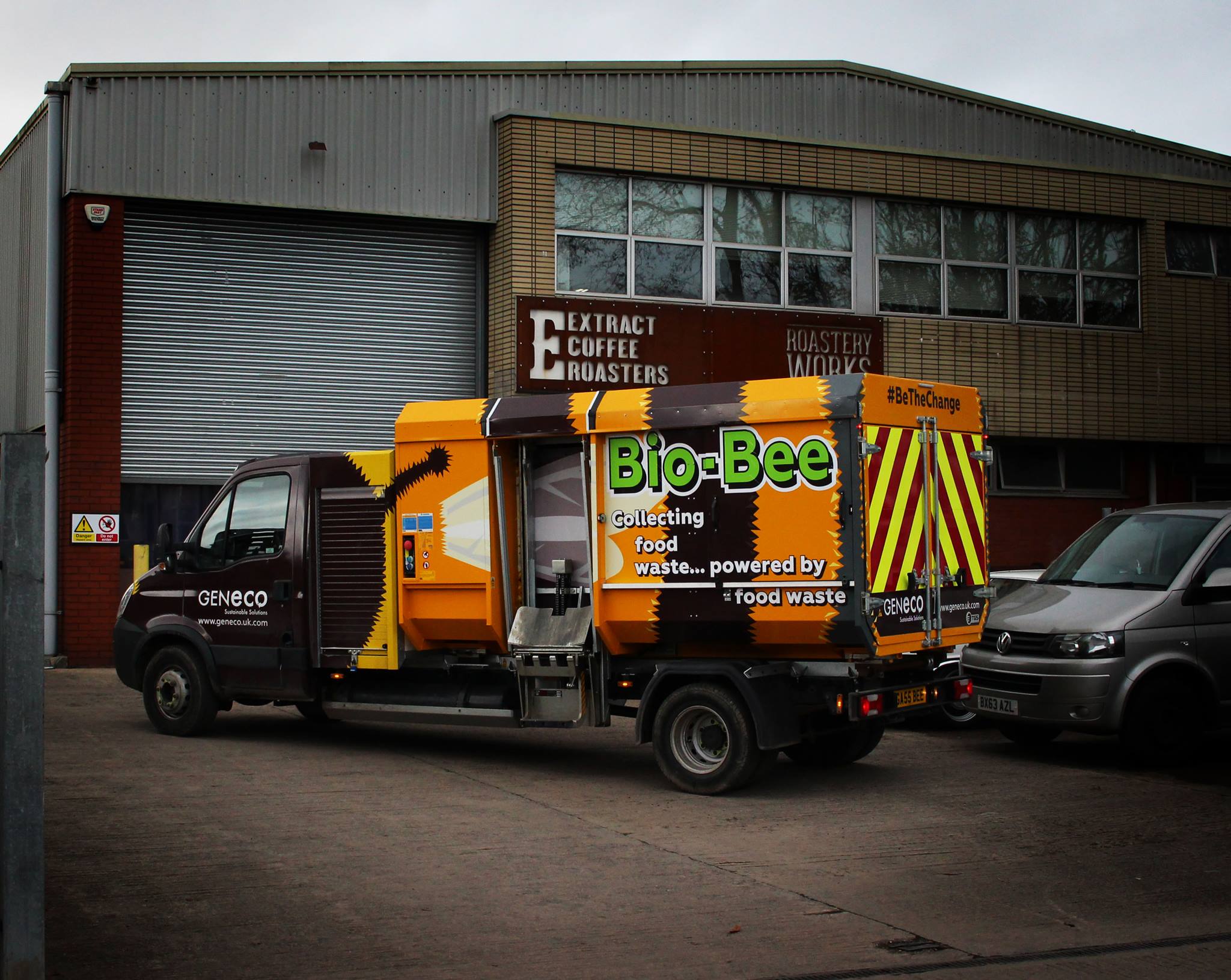
Donating surplus coffee
Fareshare South West works with the food industry to collect surplus food items, then distributes these through a network of 400+ charities and community groups.
Through this network, they support 48,500 households suffering the harshest impacts of deprivation in the South West, not being able to afford to eat. Nearly 30% of the people they help are families with children.
In 2022 we were able to donate more than 28,000 cups of coffee to these households via Fareshare South West and their distribution network.

Recycling Coffee Sacks
Coffee is delivered to our roastery in large hessian sacks with plastic liners. Once empty, the sacks are given to the Children's Scrapstore nearby to our roastery in Bristol. The plastic liners are re-used in the roastery as bin liners.
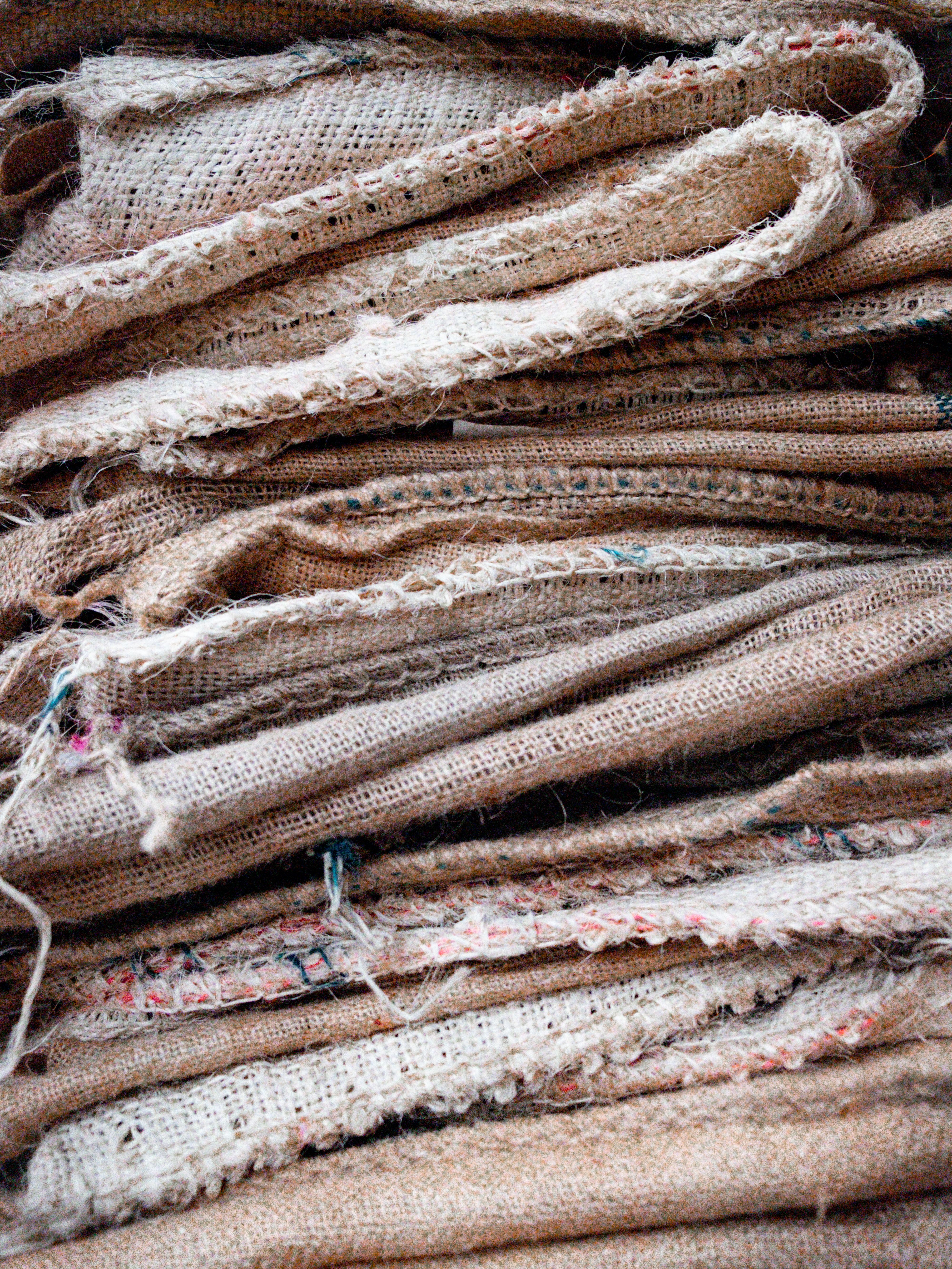
Sustainable coffee growers
We choose coffee growers who use sustainable growing methods, protecting natural resources and working in harmony with the environment.
Many of the farms we work with recycle water and reuse coffee cherries as compost on the farm as an alternative the pesticides and fertilisers. They prioritise biodiversity and wildlife conservation by keeping areas of their farms as natural forest and growing shade-grown coffee alongside other plants.
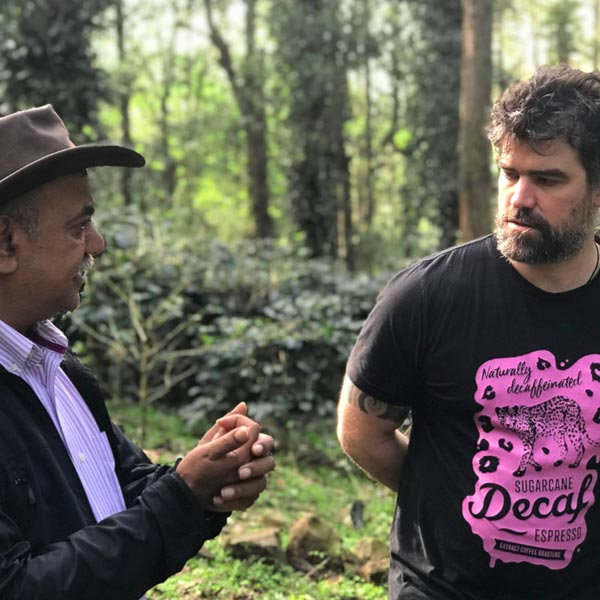
Extract Tea
It’s not all about the coffee: we work with tea smiths in in Somerset to make our own range of Extract Tea. They thought it was nonsense to ship it from India in tiny tea bags – instead they purchased a tea bag making machine and began bagging it themselves, allowing the leaves to be shipped to the UK with 70% less packaging.
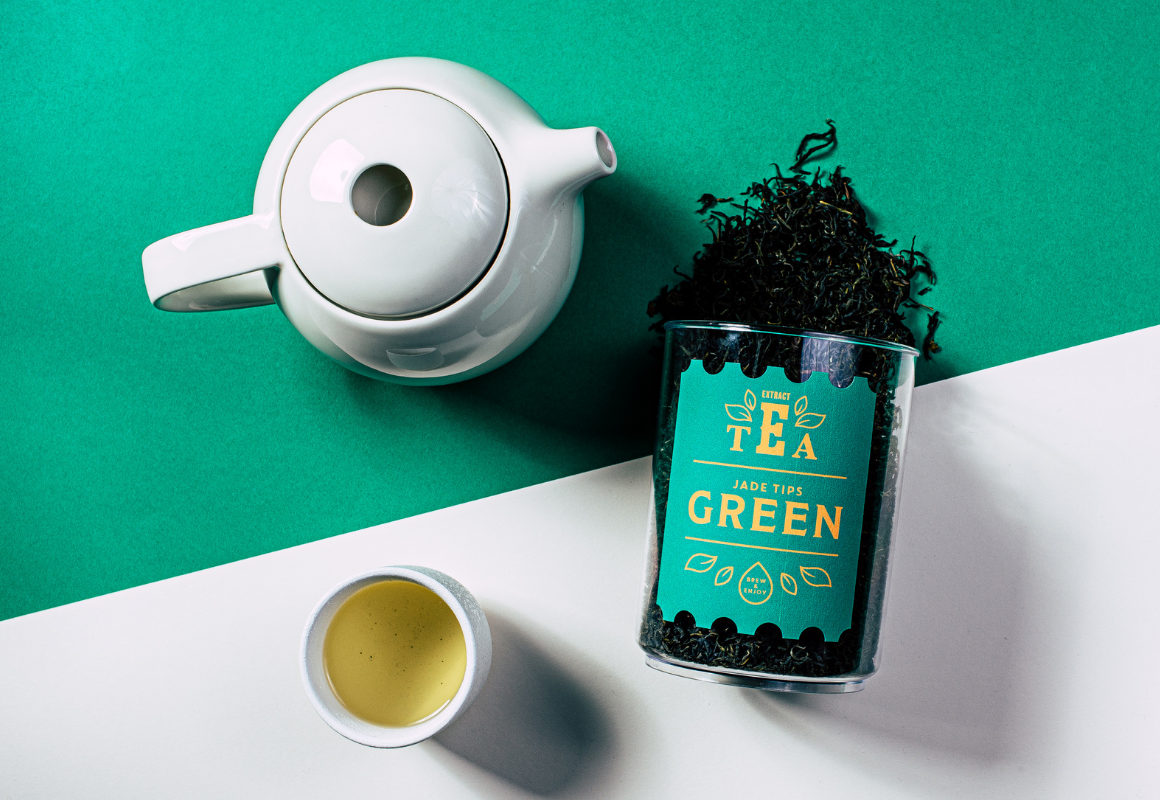
RECYCLABLE TAKEAWAY CUPS
Our takeaway cups are recyclable in your paper recycling. We chose our Re-Earth cups because paper recycling bins are now much more commonplace in public spaces.
We recognise that this is an imperfect solution (what if it's thrown in the wrong bin?!) but it seemed like the solution with the best chance of getting the cup in to the right waste stream overall.
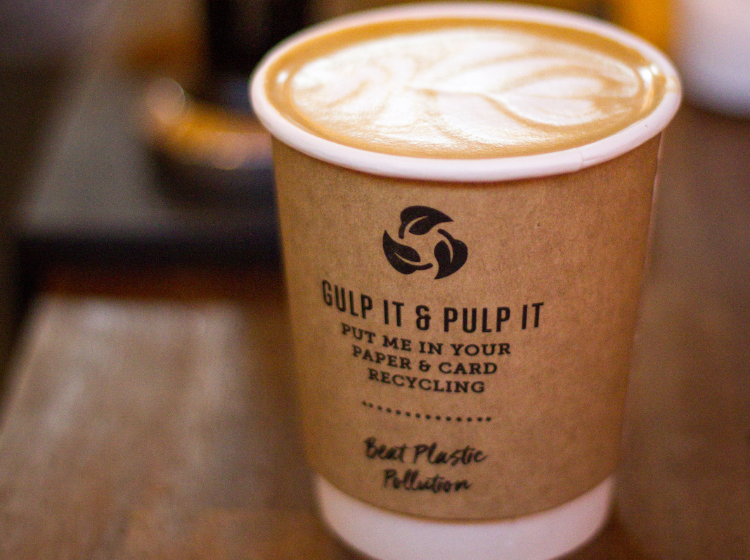
Locally made syrups and British sugar
For syrups and pure powders we use Bristol-based Beyond The Bean. Not only are their syrups made in Bristol, just minutes from our roastery, they're made using UK grown sugar too.




